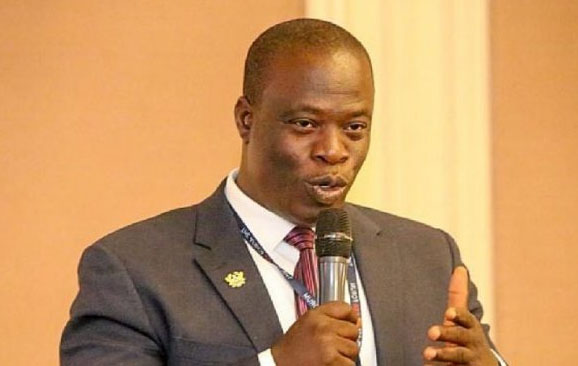Ignatius Baffour-Awuah
The Minister-designate for Employment and Labour Relations, Ignatius Baffour-Awuah, has observed that child labour remains “a major social problem” in the world, indicating that the phenomenon is still present in many global commodities production, including cocoa.
According to him, there appears to be lack of understanding for the issues of child labour, and added that “when I had the opportunity to handle the subject, my appreciation of the issue to it has actually changed and now, Mr. Chairman, I beg to say that it is a major social problem.”
He told members of the Appointments Committee of Parliament during his public vetting yesterday that “as much as possible we should encourage everybody to be out of it [child labour].”
“I am aware of a study commissioned by the US Department of Labour on the child labour situation in Ghana and Côte d’Ivoire in the areas of cocoa production, but not with reference to other areas. They have so far conducted three different surveys. The first one was done in 2008, 2013/2014 and the last one was in 2018.
“The result of that survey (2018) is that in most of our cocoa growing areas, more children are engaged in cocoa production. The implication is that if you are not very careful, consumers [of cocoa] may be forced to reject cocoa which is produced with the labour of children,” Mr. Baffour-Awuah submitted.
According to him, this is a very important issue that needs urgent attention, and added that as a result of the findings by the survey, the government, together with its partners, had developed a national plan of action christened: “Second National Plan of Action” to combat child labour.
He disclosed that he inherited one of such action plans, but “it got exhausted or elapsed in 2018” and that the Ministry of Employment and Labour Relations subsequently developed the “Second National Plan of Action.”
“What we do is that we have been able to bring all actors within the child labour environment [together] and we meet and discuss, and coordinate their activities and also monitor them to find out what they are doing to help eradicate child labour.
“I must agree that we have a huge task on our hand. A huge task in the sense that I remember in this very House once a colleague of ours brought a statement on child labour and I heard some of our colleagues contributing to the statement,” he noted.
The minister-designate said this “showed you the level of understanding of issues of child labour among members of this House and we are supposed to be the lead eye of society.”
“So if we ourselves do not even understand and appreciate issues of child labour…” he stated, but the Chairman of the Committee, Joseph Osei-Wusu then interrupted and wanted to find out whether the study was based on the definition by the US Department of Labour, which the nominee indicated that “unfortunately, we don’t have our local definition of child labour.”
Chairman: So their definition of child labour is being used to judge our local circumstance?
Nominee: Hon. Chair it is not their definition of child labour. It is our definition of child labour because we are also party to it. We have developed for ourselves what we called: ‘National Hazardous Activity Framework.’
Baffour-Awuah, who is also the NPP MP for Sunyani West, disclosed that international organisations and researchers, who conduct surveys, normally use Ghana’s documents to conduct their surveys.
“Our document is not different from the one which has also been prescribed by ILO and other international organisations. So that is why I said it is not their definition but our collective definition. The debate or disagreement is a clear pointer to the fact that society still has a difficulty in understanding issues of child labour,” Mr. Baffour-Awuah added.
By Ernest Kofi Adu

